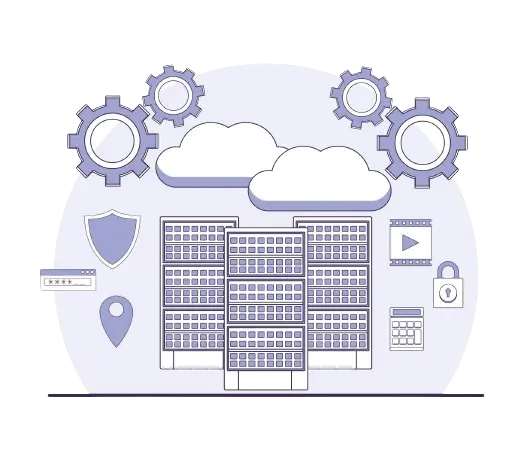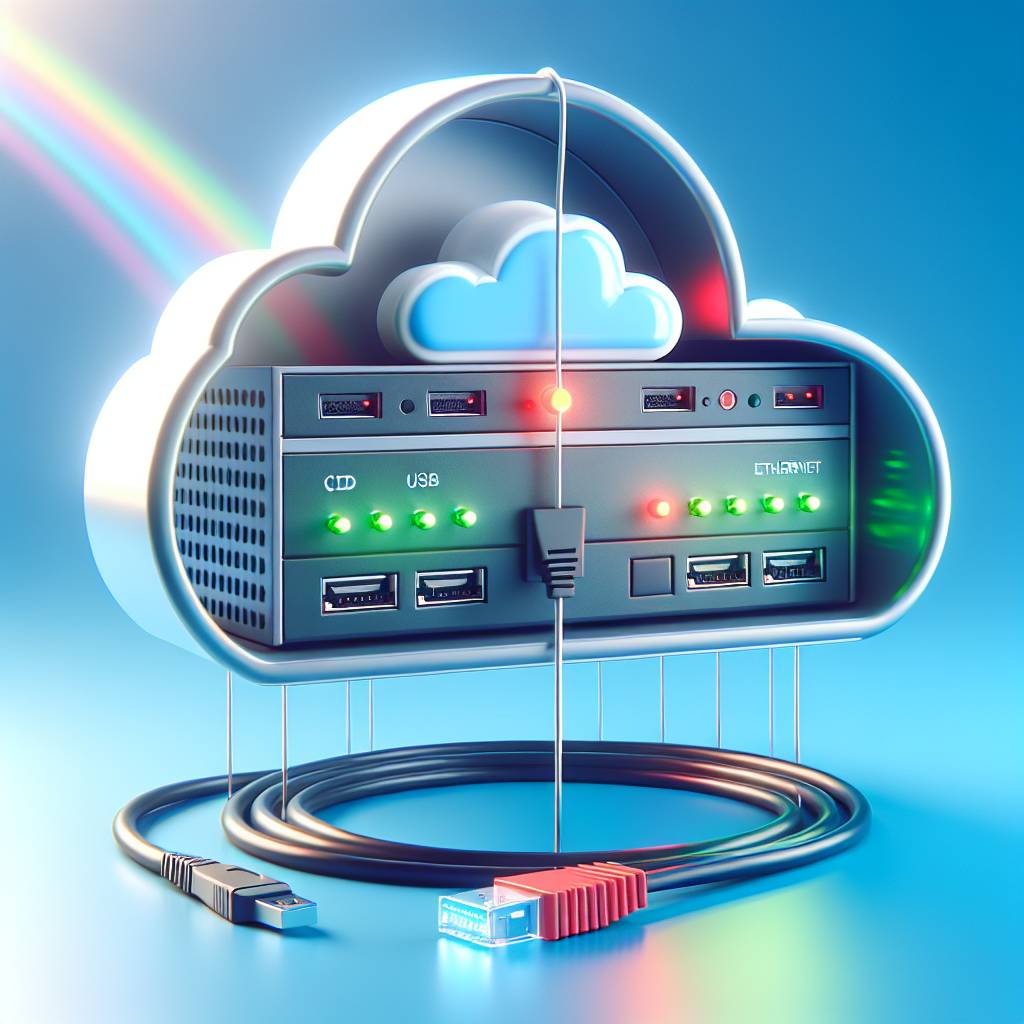Cloud servers play a key role in meeting the needs for data storage, processing capacity, and software services for businesses, entrepreneurs, and individual users today. But what is a cloud server, and how does it differ from traditional servers? In this blog post, we will define what a cloud server is, provide basic information, discuss the differences from traditional servers, and explore various service models. Additionally, we will talk about the installation processes of cloud servers and the advantages they offer to businesses. Finally, we will include success stories of using cloud servers. By examining cloud servers in detail from every angle, we will highlight the opportunities and potential they offer for businesses. Discover the differences from traditional servers, installation processes, service models, and the advantages they provide to businesses. Learn from success stories.
Definition and Basic Information of Cloud Servers
Cloud Server is a model that allows access to resources such as data storage and processing power over the internet. Users can remotely access various applications and services without the need for physical hardware. These servers offer flexibility and scalability, providing practical and cost-effective solutions unlike traditional server structures.
Cloud Server systems meet the data management needs of all businesses, from small to large, with high availability and security standards. With Cloud Server technology, businesses can perform big data analytics, artificial intelligence applications, and other intensive processing activities more quickly and efficiently.
A primary advantage of using a Cloud Server is the ability to access resources without geographic boundaries. Users can access Cloud Server resources from anywhere in the world, making them an ideal solution for business continuity and flexible working models.
Differences Between Cloud Servers and Traditional Servers
In today’s world, where technology is a crucial component, the differences between Cloud Servers and traditional server systems have significant impacts on businesses’ infrastructure decisions. Cloud Server systems, unlike physical servers, keep data accessible over the internet, providing corporate flexibility and scalability. This is especially advantageous for situations that require dynamic resource use and capacity planning.
In traditional servers, organizations need to set up physical hardware in their data centers and are fully responsible for their maintenance, while Cloud Servers lighten this burden. Cloud technology significantly reduces hardware costs, maintenance processes, and system updates. Additionally, unlike physical servers, cloud-based systems can be scaled up or down much more quickly and effectively.
In summary, Cloud Server solutions show significant differences from traditional servers in terms of data security, cost efficiency, and operational efficiency. These differences make the use of Cloud Servers indispensable, especially for businesses seeking flexibility in rapidly changing market conditions and workloads.
Cloud Server Service Models
Cloud server services have revolutionized today’s technology world. One of the most significant advantages of cloud server service models is the ability for businesses and individuals to quickly access computing resources whenever and wherever needed. These service models are usually categorized under Infrastructure as a Service (IaaS), Platform as a Service (PaaS), and Software as a Service (SaaS).
In the Infrastructure as a Service model, users can rent hardware resources, such as servers and network components, over the internet and use them without having to physically accommodate them. This offers a significant cost advantage, especially for small and medium-sized businesses. Cloud server solutions are a prominent example of this model and offer flexible, scalable, and reliable services.
Platform as a Service (PaaS) provides developers with the platform and tools necessary to develop software applications. In this model, developers do not need to manage the infrastructure but can focus solely on creating and deploying their applications. Cloud server-based PaaS solutions accelerate the software development process, shorten time to market, and reduce costs.
Cloud Server Installation Processes
Cloud Server installation processes require high technological knowledge and should be carefully planned. These processes can be customized according to the organization’s needs and generally involve a series of preparatory actions. Initially, the company’s existing IT infrastructure and requirements for transitioning to cloud services are carefully examined, often starting with an on-site assessment.
In the second stage, hardware and software requirements suitable for the selected Cloud Server service model are determined. Integrating necessary security protocols to safely transfer all data to the Cloud Server is a critical part of this process. Additionally, system integration, performance optimization, and setting up user access controls are also performed during this stage.
Finally, after the Cloud Server installation process, regular maintenance and continuous support services should be planned. Post-installation support is vital to ensure the server continues to operate efficiently. Additionally, as technological advancements occur, the server’s continuous updates and optimizations are necessary. This allows businesses to use their Cloud Server capacities in the best way possible, maintaining a competitive advantage.
Advantages of Cloud Servers for Businesses
The contributions of cloud server technologies to business efficiency and cost management are becoming increasingly important day by day. Especially by avoiding fixed IT infrastructure investments, cloud server solutions that offer the ability to reduce operational costs and dynamically manage workloads are quite attractive options for businesses of all sizes.
Cloud server platforms for businesses increase the ability to compete in the global market while also accelerating business processes and allowing for more flexible IT management. For example, an e-commerce company can instantly provide the necessary server resources to respond quickly to sudden traffic increases, thus enhancing customer satisfaction and sales.
Another significant advantage of cloud server services is the contributions they make to data security and cybersecurity. By geographically distributing data and continuously backing it up, businesses have a structure that can protect their data even in the event of a natural disaster or system failure. This situation has become an indispensable part of business continuity plans.
Success Stories in Using Cloud Servers
Many businesses have greatly improved their processes by transitioning to Cloud Server technologies, particularly making a noticeable difference in data storage and access ease. The flexible nature of Cloud Server solutions allows businesses to manage their resources more efficiently, thus saving time and costs.
As a successful example of Cloud Server usage, consider a global retail company. This company has transitioned to Cloud Server technology to analyze consumer data and optimize inventory management. As a result, significant increases in customer satisfaction have been observed, and operational efficiency has reached its maximum level.
Additionally, success stories of Cloud Server usage in the education sector are noteworthy. Universities and educational institutions use the Cloud Server structure to support distance learning programs and provide uninterrupted access to students. This enables them to offer the same quality of education to students located in different geographies.






